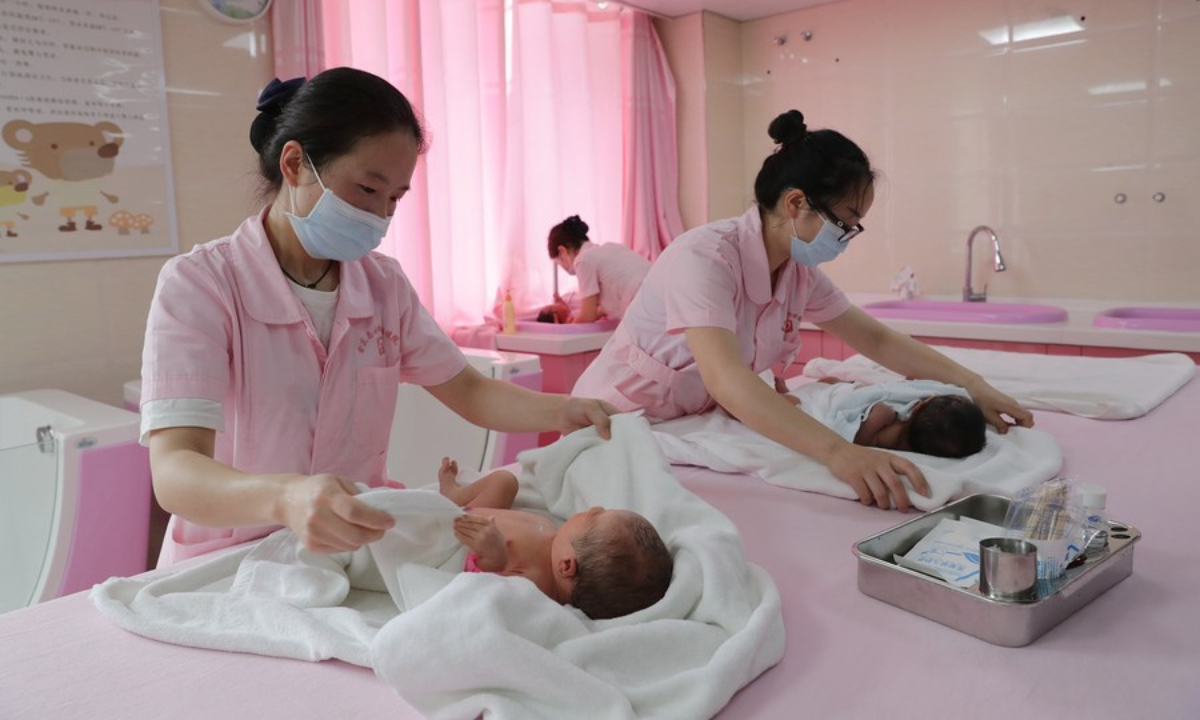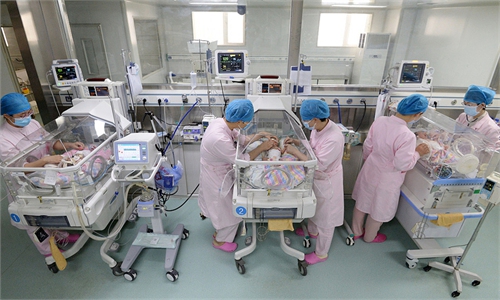A Chinese company launches fertility subsidy program, rewarding employees up to $6,887 for each newborn baby

Nurses take care of newborn babies at a hospital in Zunyi, southwest China's Guizhou Province. Photo:Xinhua
A Chinese company announced on Friday that it has launched a fertility subsidy program, under which its employees who have been working at the firm for over three years could receive up to 50,000 yuan($6,887) for each newborn baby they have. The program, adding to an array of incentives to encourage Chinese families to have larger families, comes as China's population in 2022 shrank for the first time in over 60 years amid a falling birth rate.
The program will be effective from July 1, 2023, and applies to all its global employees regardless of gender, the Global Times learned from China's online travel platform Trip.com. Employees who have a newborn baby will receive cash subsidy of 10,000 yuan each year, until their children reach 5 years old.
Trip.com reportedly plans to invest 1 billion yuan in birth subsidies in the future. In 2022, the growth rate of the company employees' newborn families reached 147 percent, while birth rates for a second child increased by 329 percent.
The company's measures come as Chinese authorities have launched various supportive measures, including in finance, tax, housing, employment, education and other fields, to create a fertility-friendly society and lift the country's birth rate.
It is estimated that if China implemented effective policies to fully encourage birthrate, the number of newborn babies could return to more than 10 million by 2030, with the total population expected to stand at 1.29 billion in 2050, according to a report issued by the YuWa Population Research think tank. The institution is established by a group of demographers and economists, including Liang Jianzhang, the co-founder of Trip.com and economics professor at Peking University.
In May, the China Family Planning Association announced that it will be launching pilot projects in 20 cities to build a new-era marriage and childbearing culture, in order to remove some of the barriers stopping couples from having more children. .
In 2022, the population in the Chinese mainland registered its first instance of negative growth in 61 years, decreasing by 850,000 year-on-year to 1.4118 billion, data released in January by the National Bureau of Statistics (NBS) showed. Around 9.56 million babies were born in China in 2022, a record low since 1949.
Global Times


